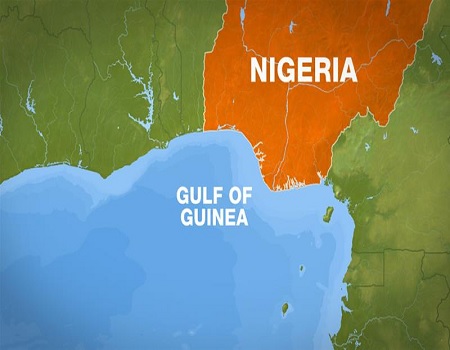Over 2,000 people from 38 countries across the globe have gathered in Abuja to deliberate on solutions that will bring to an end the high rate of pirate activities that are sabotaging the economy of the global maritime community especially in the Gulf of Guinea.
The Maritime Conference, the Global Maritime Security Conference is holding in Abuja From the 7th to 9th of October with representatives from Brazil, U.S, Europe and Africa.
In a press briefing at the weekend, the Director-General of the Nigerian Maritime Administration and Safety Agency (NIMASA), Dr. Dakuku Peterside decried the scourge of maritime insecurity, especially in the Gulf of Guinea.
He said there was an urgent need for international collaboration to tackle the menace, emphasizing that the conference would come up with a formal declaration on solutions to maritime insecurity in the Gulf of Guinea.
“Dealing with the issues of piracy and maritime crime requires inter-agency collaboration as well as regional collaboration between sister agencies in the participating countries,” he stated.
ALSO READ: Demolition: No illegal structure will be spared, FCTA vows
The DG said, “about eight Chiefs of Naval Staff from Africa, 16 representatives of Chiefs of Naval Staff from the continent, and representatives of Chiefs of Naval Staff from Brazil, United States, and some European countries were expected at the conference.
“So, we have full representation. We have navies from 38 countries coming for the conference, including two Rear Admirals from the United States. The global naval community is well represented at the conference. We are also bringing the Head of Liberian Coast Guard, we are bringing the heads of coast guards from 27 countries. We have clearly confirmed over 500 foreigners coming for the conference and over 2,000 persons have registered for the Global Maritime Security Conference.
“This is a tactical conference between developing countries, developed countries and high international partners to find a solution to a problem that is affecting global commerce. Ninety per cent of commerce is conducted via seaborne trade, so whatever affects seaborne trade affects global commerce and has a direct impact on the development and quality of living of a people,” Dakuku stated.
He further explained that, “at the end of the conference, we are expected to come up with the Abuja Declaration on Maritime Security in the Gulf of Guinea, which will be a document that will be a consensus agreement of all participants regarding what needs to be done to address the deteriorating situation. There will be a defined roadmap to deal with maritime security in the Gulf of Guinea.”
WATCH TOP VIDEOS FROM NIGERIAN TRIBUNE TV
- Let’s Talk About SELF-AWARENESS
- Is Your Confidence Mistaken for Pride? Let’s talk about it
- Is Etiquette About Perfection…Or Just Not Being Rude?
- Top Psychologist Reveal 3 Signs You’re Struggling With Imposter Syndrome
- Do You Pick Up Work-Related Calls at Midnight or Never? Let’s Talk About Boundaries







